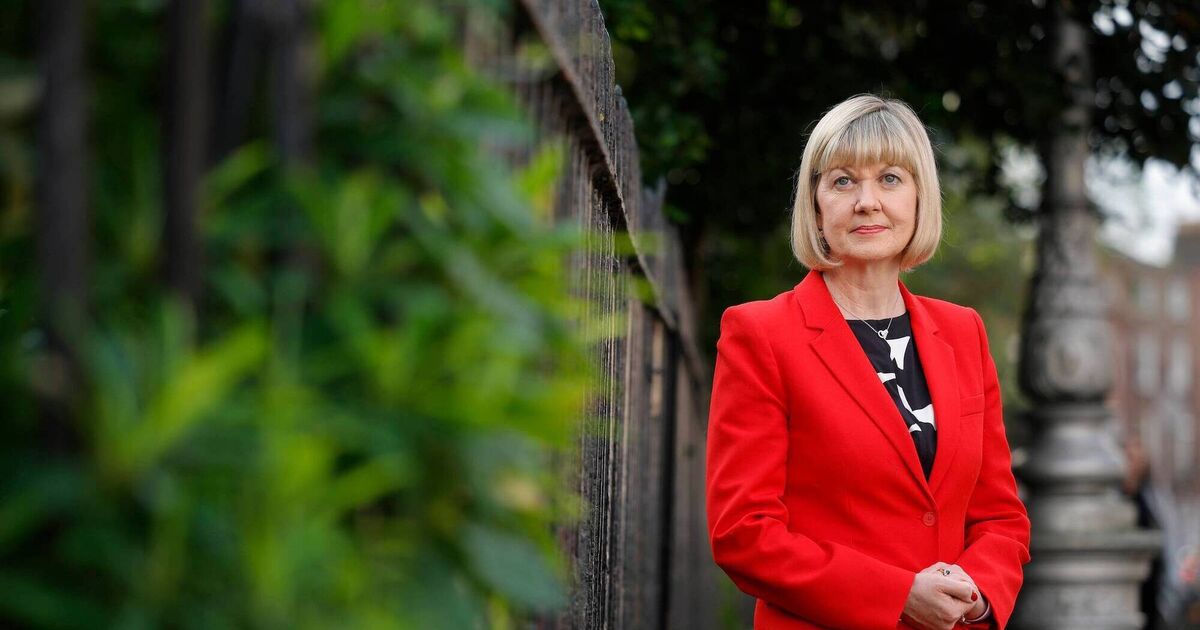The head of Ireland’s first-ever gambling regulator has hit out at the “gamblification” of sports, and said that it could damage young people’s relationship with something that should be a “positive influence on them”.
A new broadcast watershed set to be introduced will mean that gambling advertising won’t be permitted to be shown on Irish television or radio during, for example, a Super Sunday Premier League game or during most Six Nations games when many children are tuning in.
Furthermore, companies that breach Ireland’s new gambling laws will be facing fines of up to €20m or 10% of their turnover, whichever is higher, or have their licence suspended under the new regulator.
In a wide-ranging interview with the published on one of the busiest days of the sporting calendar, the CEO of the Gambling Regulatory Authority Anne Marie Caulfield said that recruitment is stepping up to build a “corporate spine” at the regulator to include a range of different expertise with its formal work set to finally begin in the new year.
One of the initial actions of the authority was to commission the ESRI to conduct research to fully grasp the extent of the problem with gambling in Ireland.
The results of these studies, described by Ms Caulfield as “quite stark”, found that there are around 130,000 problem gamblers in Ireland. This is the equivalent of one in 30 people.
“It is estimated that for every person who is demonstrating problem gambling, six to seven people are affected in terms of the family, in terms of the friends,” she said. “It is quite broad, in terms of the scale and the scope, so I think it was important to establish what we are dealing with.”
Protecting children is a key focus for the new gambling regulator and, along with educational and awareness programmes to be funded by a levy on the industry itself, the advertising watershed will be key, according to Ms Caulfield.
“That’s exactly the rationale behind [what we’re doing],” she said. “That we wouldn’t have that gamblification of sports, for want of a better way of putting it. That it wouldn’t normalise that gambling and sport go hand in hand.
“Because obviously sport is such a positive influence for young people in their formative years. It’d be a pity if that was the case, and potentially very damaging for them.”
The ESRI research found that the number of problem gamblers in Ireland is 10 times higher than previously thought, and that as many as one in 10 of the population are either problem gamblers or engaged in at-risk behaviours.
She said an important role for the regulator will be to work with the HSE and other services to provide the right supports for people affected by problem gambling, and raise awareness of the problem among wider society.
“There is a stigma attached with problem gambling,” Ms Caulfield said. “We’re going to try to dispel that so people know that they’re not alone and that there is help out there for them.
“So, I suppose in the first instance, we have been charged with regulating the sector, and to do so effectively will be extremely important. But then also in terms of education and awareness, so that people can start to talk about these issues, and start to identify where they may have an issue themselves or in their family, and to start to deal with it.”
With legislation set to grant them their long-awaited powers in the new year, and a multi-billion euro industry to regulate, Ms Caulfield added that she is under no illusions as to the importance of the task at hand.
“I wouldn’t underestimate the amount of work that’s ahead, in terms of the levers that are there, and that are available to us,” she said. “I think it’s incumbent upon us to make sure that we do make a difference.”

